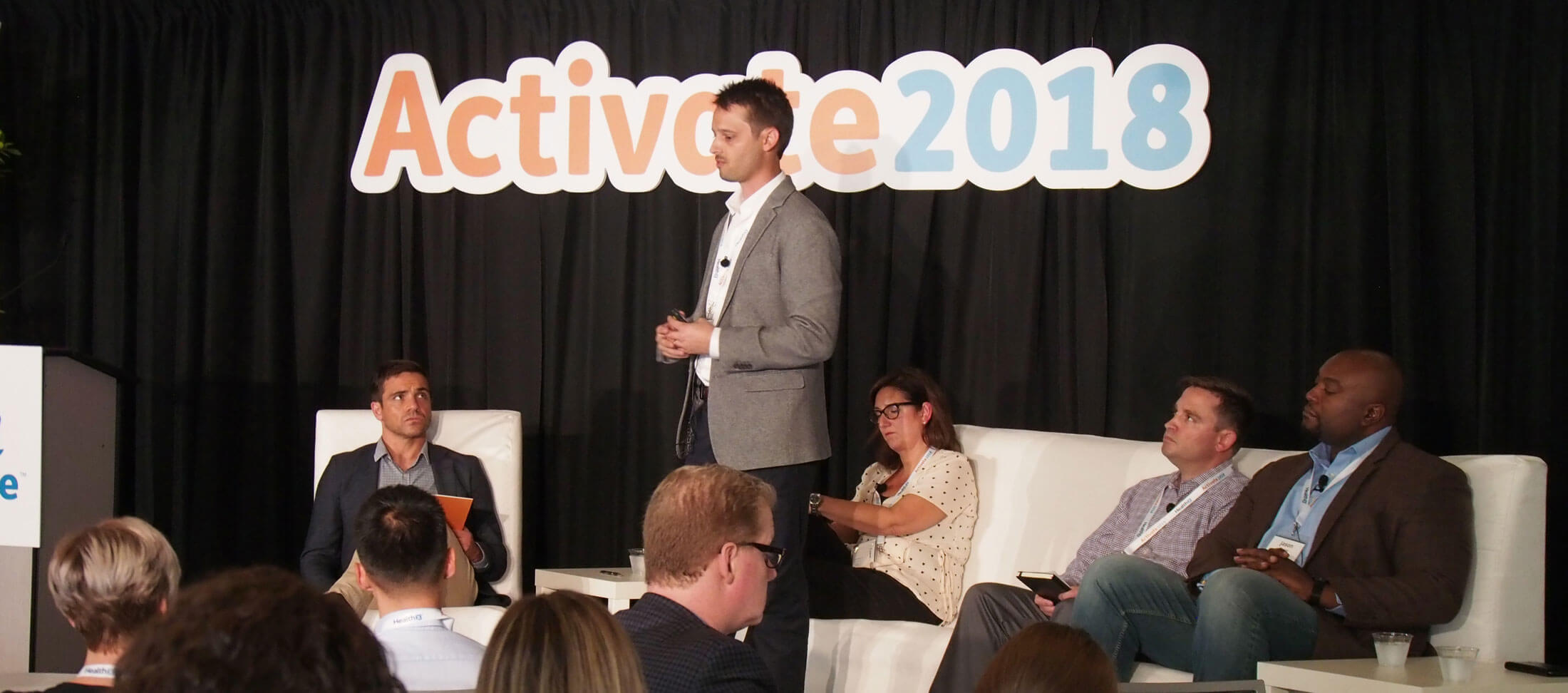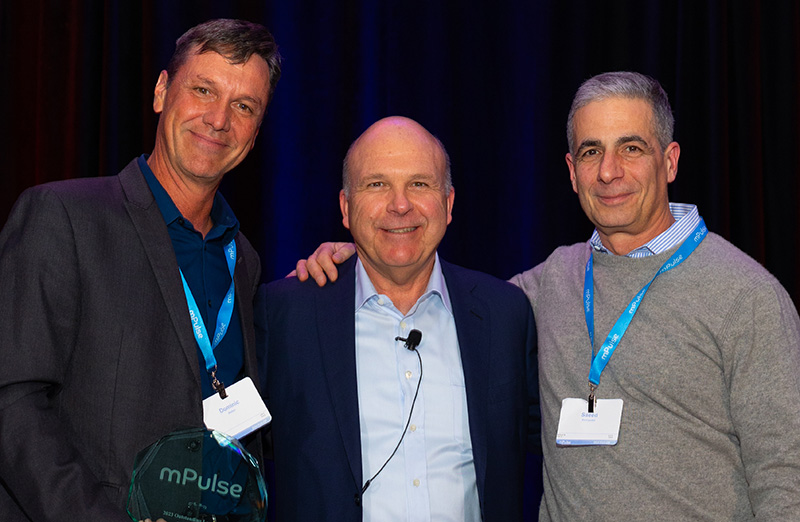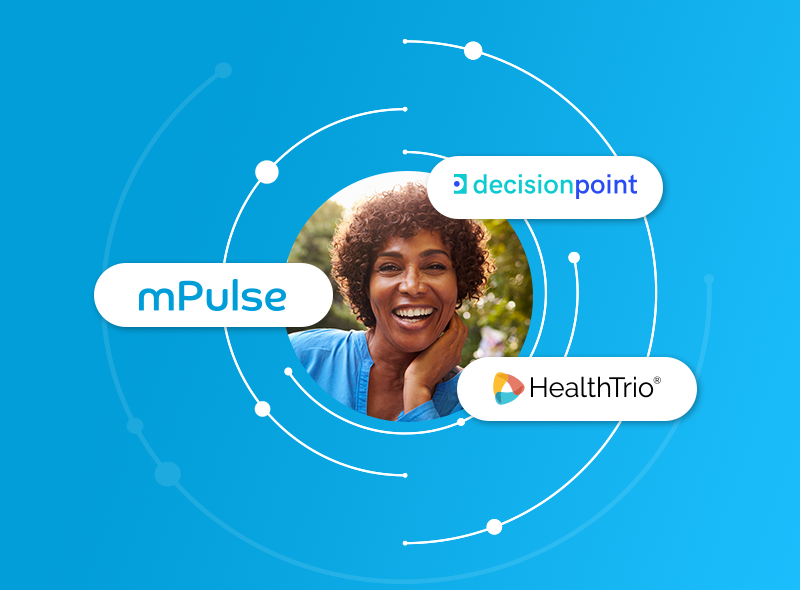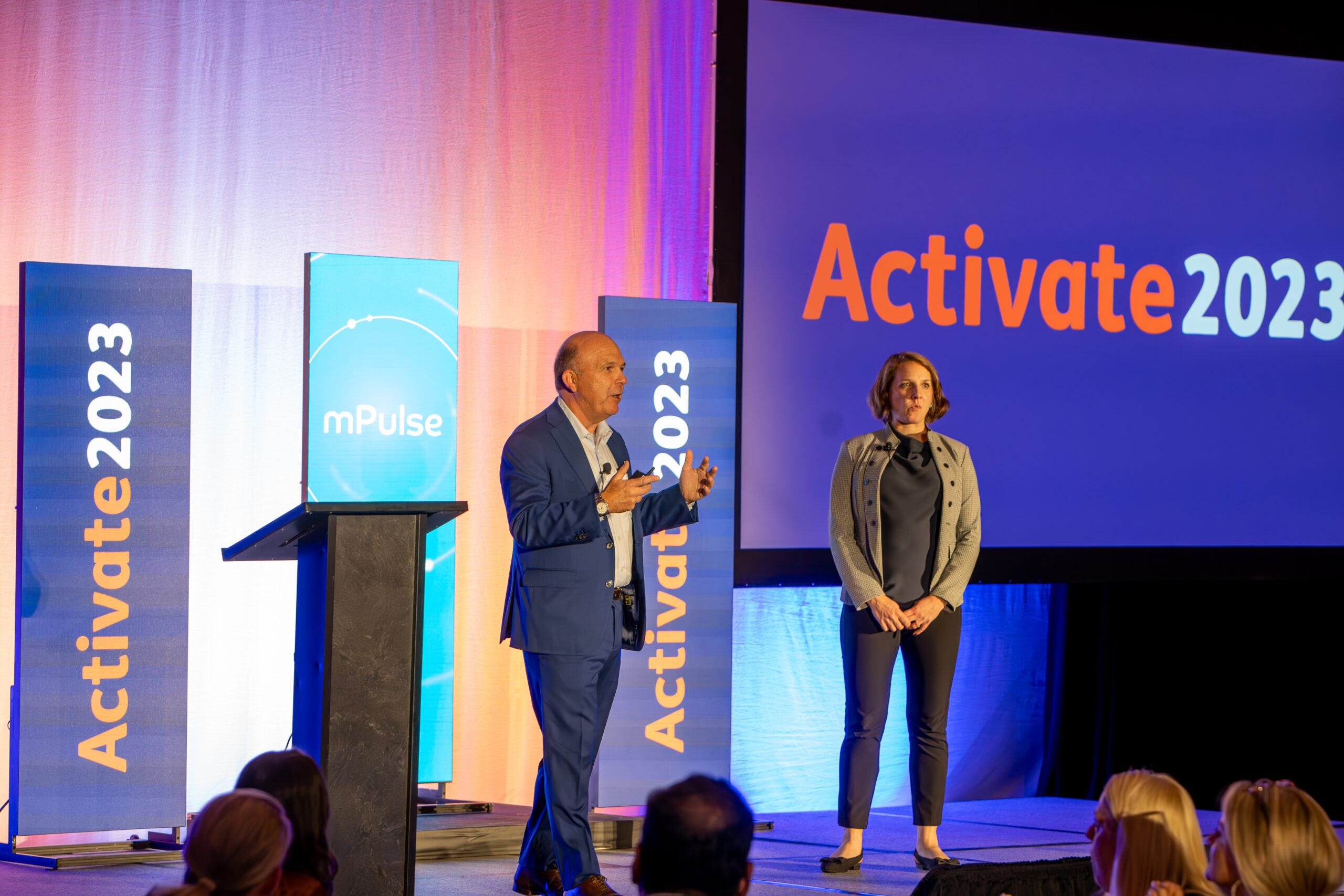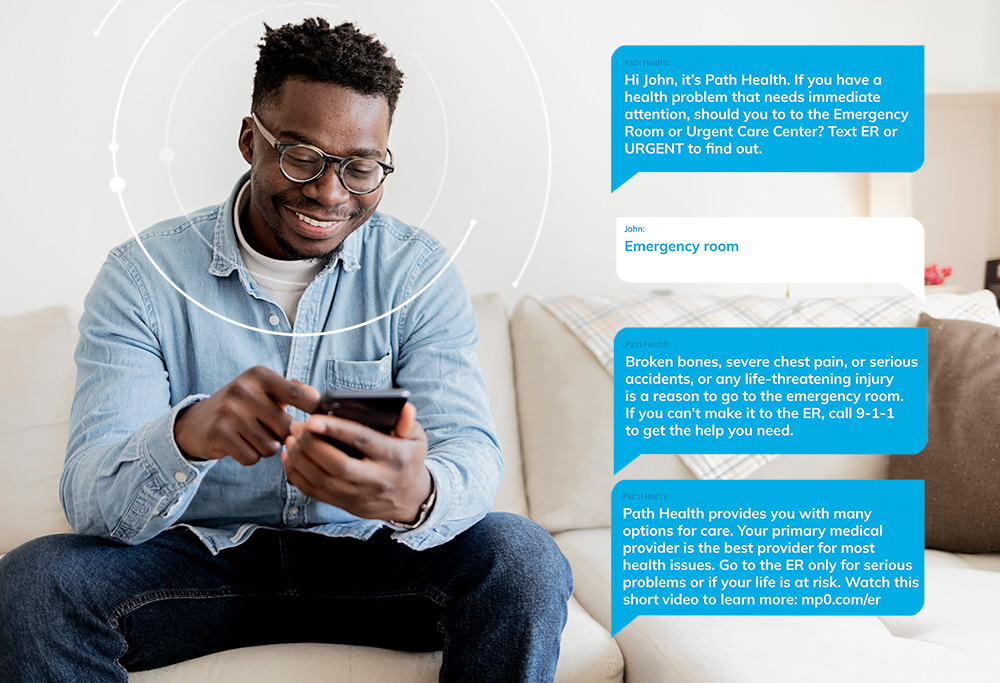Activate2018 was mPulse Mobile’s second annual industry event, bringing healthcare leaders together to discuss the leading strategies and mobile programs that drive healthy behavior change. Throughout healthcare, there is a lot of buzz around conversational AI, chatbots and their role in consumer activation. Activate2018 showcased real-word examples of conversational AI programs, the data and technology that drives them, and most importantly, how they can be leveraged to drive healthy behavior change across a broad range of health challenges.
THE MOVE TOWARDS OPEN DATA STANDARDS
The importance of data was a core theme that permeated every session. In his Keynote session, Aneesh Chopra, the first Chief Technology Officer of the Unites States and President of Care Journey, discussed open data sharing as a requirement for patient activation. Open data standards have empowered consumers in other industries, particularly finance with Intuit API-based interoperability standards. The equivalent approach for healthcare is needed, and with recent moves by regulators (CMS’ Blue Button initiative) and significant moves by industry players (Apple Health Records adopting FIHR standards), the technical change will happen. But he stressed there will need to be a cultural change, too. Technical capability is not enough alone to produce health outcome results. Health organizations must empower consumers to utilize their health data in a way that realizes potential, and mobile solutions that activate consumers in this area will be key to accelerating change across broad sections of the population.
ACTIVATION CASE STUDIES FROM KAISER PERMANENTE AND HOME STATE HEALTH
During the panel “Activation in Action: Stories of Successful Behavior Change,” Kaiser Permanente and Home State Health both presented on their mobile programs that use mPulse’s Activation Intelligence product. Both programs, which are ongoing, rely on data-driven tailoring to deliver conversations that are meaningful to each individual. Kaiser Permanente improved rates of blood glucose control in diabetic patients, and Home State demonstrated the ability to engage hard to reach populations and increase attendance at key preventive health visits.
Both speakers addressed the need to harness both source system data and consumer generated data to tailor conversations.. Dr. William Woo, Assistant Chief, Family Medicine & Diabetes Champion, Kaiser Permanente, spoke to the power of mobile engagement to uncover key insights from the consumer such as barriers and health beliefs. Only by understanding these key psychographic factors can you effectively tailor programs to the individual.
DEVELOPING AN ACTIVATION STRATEGY & PROGRAM
Cambia Health Solutions, Healogics, Healthx and Trusted Health Plan discussed the programs they have launched in the last year during the panel, “The Milestones of Implementing Mobile Health Engagement Solutions.” In each case, the companies started their programs by focusing on a single use-case. After demonstrating results and the impact of interactive text messages, there was broad interest across different departments in their organizations to launch additional programs. Having internal champions, demonstrating results and the importance of governance to ensure programs remain compliant were additional themes from the panelists.
EMPATHY
Empathy is another key factor influencing consumer experience, particularly as more healthcare companies are delivering sophisticated conversational AI programs. Empathy is the ability to engage and react with consumers in a way that is natural, demonstrates understanding and adapts to the consumer . A powerful illustration of this concept was highlighted in mPulse Mobile Co-Founder and CEO, Chris Nicholson’s keynote, when he talked about emojis. Emojis are an important way that consumers express themselves. In many cases, use of emojis reflects consumer adoption to texting with their healthcare organization.
mPulse has received hundreds of thousands of messages that contain emojis. In fact, some messages only contain emojis. Surprisingly, the 60-70 year old segment is the biggest user. Having the technical capability to correctly interpret and react to emojis is important for healthcare organizations to engage in an empathetic way, which in turn drives activation.
ASKING QUESTIONS
An important concept demonstrated at the event was the power of asking questions. Direct questions to consumers through text messages are, in many cases, the only way healthcare organizations can uncover key insights and data outside of direct conversations between consumers and care staff.
The technological advances in conversational AI have created a wealth of opportunity in this area. Take consumer preferences around message frequency as one example. Commonly, healthcare organizations have message frequency rules that apply across all consumers segments, with frequency often set low due to fear of over messaging. When consumers are asked what frequency of messages they would like, there is a broad spectrum of preferences and the frequency is almost always much higher than companies expect. By not asking this question, companies are not meeting the needs of their consumers, and they are not taking advantage of valuable opportunities to engage their populations.
Message frequency is a simple concept, but AI allows much more complex insights to be gathered such as psychographic factors, goal setting and consumer reported outcomes. The data is so rich that the challenge becomes how to take full advantage of it. The power of asking questions was addressed by mPulse’s Chief technology Officer, Ram Prayaga. In his technology deep dive, he took the attendees through the concept using mPulse’s Activation Intelligence product. Using smoking cessation as an example engagement challenge, he demonstrated how the product uses questions to gather and store key insights on each individual consumer in a dynamic member profile, called the Activation Profile. The Activation Profile is referenced real-time to determine the most appropriate dialogues to deliver to individual consumers to uncover key insights and to drive specific behavioral outcomes. The Activation Profile is also used to create an Activation Score which quantifies how activated a consumer is, which, when applied to a particular health engagement program, can be used as a predictor of how an individual through to a whole population is likely to behave.
Throughout the event it was apparent how important health activation was for the organizations in attendance. There was broad agreement that their health consumers want tailored and meaningful engagement from their trusted healthcare providers. The Activate2018 conference provided an important environment to dive into these topics, discuss best practices and create a pathway to success for all.
To be notified when we have posted the video recordings of Activate2018 sessions, please click here.
Brendan McClure is the Director, Solutions Marketing at mPulse Mobile.

